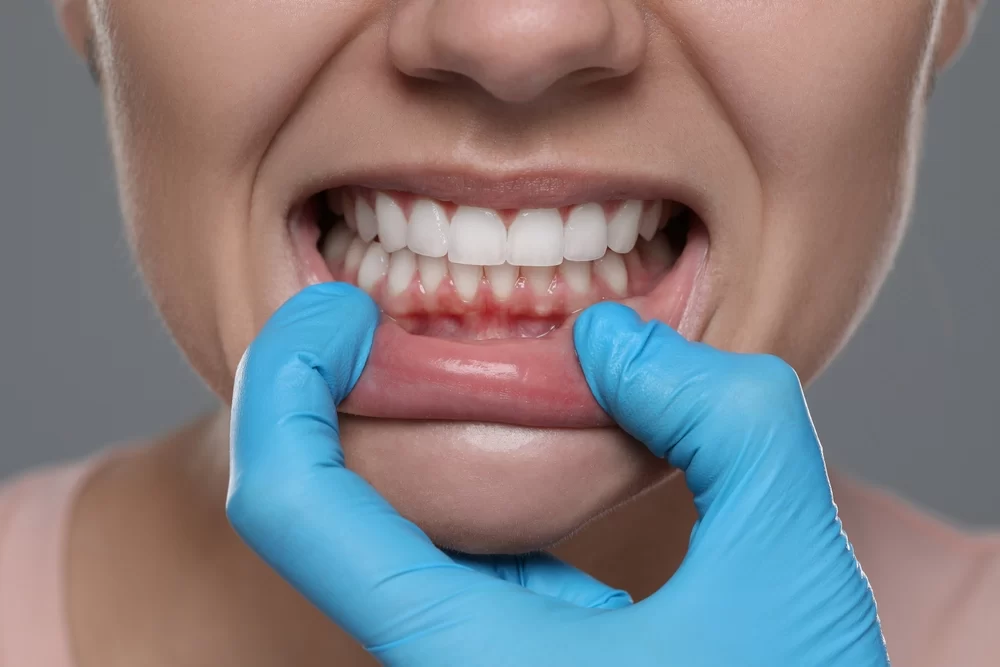
Master Good Oral Hygiene Habits for Healthy Teeth and Gums: Essential Tips for Daily Care
- Why Good Oral Hygiene Matters
- Core Oral Hygiene Habits for Healthy Teeth
- How to Create an Effective Dental Health Routine
- Common Mistakes to Avoid in Oral Care
- How to Maintain Healthy Gums
- Recommended Products for Optimal Oral Hygiene
Why Good Oral Hygiene Matters
Good oral hygiene habits are the cornerstone of a healthy mouth. They help prevent common dental problems such as cavities, gum disease, and bad breath. Maintaining proper oral hygiene is essential not just for the appearance of your smile, but also for your overall health. Poor oral hygiene has been linked to more serious health conditions, including heart disease and diabetes. By adopting good habits like regular brushing and flossing, you can protect your teeth and gums for a lifetime.
Studies show that individuals with poor oral health are more likely to develop systemic conditions, making oral hygiene an important aspect of maintaining general well-being. Therefore, understanding and practicing effective oral care habits is crucial for long-term health.
Core Oral Hygiene Habits for Healthy Teeth
The foundation of good oral hygiene lies in a few essential habits that, when performed consistently, can help you maintain healthy teeth and gums. These habits are simple yet effective:
1. Brushing Your Teeth Properly
Brushing your teeth twice a day is one of the most important aspects of dental hygiene. Use a soft-bristled toothbrush and fluoride toothpaste to brush for at least two minutes, ensuring you cover all surfaces of your teeth—front, back, and chewing surfaces. Brushing helps remove plaque and food particles, which are the main causes of tooth decay and gum disease.
When brushing, make sure to use gentle, circular motions rather than aggressive back-and-forth movements. Brushing too hard can damage your gums and enamel, leading to other dental problems.
2. Flossing Daily
Flossing is just as crucial as brushing for preventing cavities and gum disease. While brushing removes plaque and food particles from the surfaces of your teeth, flossing helps clean between your teeth where your toothbrush can’t reach. Regular flossing removes plaque that can lead to gingivitis (the early stage of gum disease) and cavities in between your teeth.
Aim to floss at least once a day, using a clean section of floss for each tooth. Be gentle to avoid injuring your gums, and make sure to reach both sides of every tooth.
3. Using Mouthwash
Incorporating mouthwash into your oral care routine can offer additional protection by killing bacteria, freshening your breath, and helping to prevent gum disease. Choose a mouthwash with fluoride and antibacterial properties to provide added protection and promote oral health.
Mouthwash should be used after brushing and flossing to enhance the cleaning process and provide a final layer of defense against harmful bacteria.
How to Create an Effective Dental Health Routine
Establishing an effective oral hygiene routine is crucial for maintaining a healthy smile. Here’s how to structure your daily routine:
1. Morning and Night Brushing
Brushing your teeth both in the morning and before bed helps ensure that your teeth are clean and free of plaque buildup. The morning brushing removes any bacteria that have accumulated overnight, while brushing before bed removes the day’s buildup of food and plaque.
2. Flossing After Meals
If possible, floss after meals to remove any trapped food particles and plaque. This helps maintain cleanliness and prevents the buildup of harmful bacteria that can lead to cavities and gum disease.
3. Regular Dental Check-ups
Even with the best oral hygiene habits, regular visits to the dentist are essential. Dentists can identify early signs of tooth decay, gum disease, and other oral health issues before they become serious problems. A professional cleaning every six months is also recommended to remove plaque and tartar buildup that can’t be addressed by brushing and flossing alone.
Common Mistakes to Avoid in Oral Care
While you may be following a dental health routine, there are several common mistakes people make in their oral hygiene that can hinder their efforts. Here are a few to watch out for:
1. Not Brushing Long Enough
Brushing for less than two minutes can leave plaque and bacteria behind, leading to cavities and gum problems. Be sure to brush for the full two minutes to properly clean all areas of your mouth.
2. Using an Old Toothbrush
Using a toothbrush with frayed bristles will not effectively clean your teeth. Replace your toothbrush every three to four months, or sooner if the bristles become worn.
3. Skipping Flossing
Skipping flossing can leave food particles and plaque between your teeth, increasing your risk for cavities and gum disease. Make flossing a daily habit for optimal oral health.
How to Maintain Healthy Gums
Healthy gums are just as important as healthy teeth. If your gums are swollen, red, or bleed when you brush or floss, you may have gum disease. To maintain healthy gums, follow these tips:
1. Avoid Tobacco
Smoking and chewing tobacco can significantly increase your risk of gum disease. These habits reduce blood flow to your gums and impair your body’s ability to fight infection, making it harder for your gums to heal.
2. Eat a Balanced Diet
Eating a healthy diet rich in fruits, vegetables, and whole grains helps your gums stay strong and healthy. Vitamin C, in particular, plays a key role in gum health.
Recommended Products for Optimal Oral Hygiene
To support your oral hygiene habits, using the right products can make all the difference. Some recommended products include:
1. Toothbrushes with Soft Bristles
A toothbrush with soft bristles is the best option for gently removing plaque without damaging your gums. Look for one with an ergonomic handle for a comfortable grip.
2. Fluoride Toothpaste
Choose toothpaste with fluoride to help strengthen tooth enamel and prevent decay. Many toothpaste brands also offer options for whitening, fresh breath, and gum health.
3. Antibacterial Mouthwash
An antibacterial mouthwash can help kill harmful bacteria in your mouth and reduce plaque buildup. Look for a mouthwash that also contains fluoride for added protection.
To learn more about the best oral hygiene habits and products, visit Dentistry Toothtruth for expert advice and recommendations on maintaining a healthy smile.







 Jersey Smiles (formerly Jersey Dental)4.0 (463 review)
Jersey Smiles (formerly Jersey Dental)4.0 (463 review) Dr. James K. Park, DDS5.0 (2 review)
Dr. James K. Park, DDS5.0 (2 review) David Yang A Professional Corporation4.0 (32 review)
David Yang A Professional Corporation4.0 (32 review) Hillsboro Dental Center4.0 (170 review)
Hillsboro Dental Center4.0 (170 review) COMPREHENSIVE DENTISTRY PC4.0 (18 review)
COMPREHENSIVE DENTISTRY PC4.0 (18 review) Glen Oaks Dental Pllp5.0 (145 review)
Glen Oaks Dental Pllp5.0 (145 review) The Importance of Oral Health Education During Pregnancy for a Healthy Pregnancy
The Importance of Oral Health Education During Pregnancy for a Healthy Pregnancy Best Tips for Brushing Your Teeth Properly for Healthy Gums: Essential Techniques for Oral Health
Best Tips for Brushing Your Teeth Properly for Healthy Gums: Essential Techniques for Oral Health Why Skipping Dental Checkups Can Lead to Bigger Oral Health Problems
Why Skipping Dental Checkups Can Lead to Bigger Oral Health Problems Advantages of Porcelain Dental Restorations
Advantages of Porcelain Dental Restorations How Can Diabetes Cause Tooth and Gum Problems? Preventing and Managing Oral Health Issues
How Can Diabetes Cause Tooth and Gum Problems? Preventing and Managing Oral Health Issues Healthy Habits for Promoting Good Oral Health and Hygiene: Tips for a Healthy Smile
Healthy Habits for Promoting Good Oral Health and Hygiene: Tips for a Healthy Smile